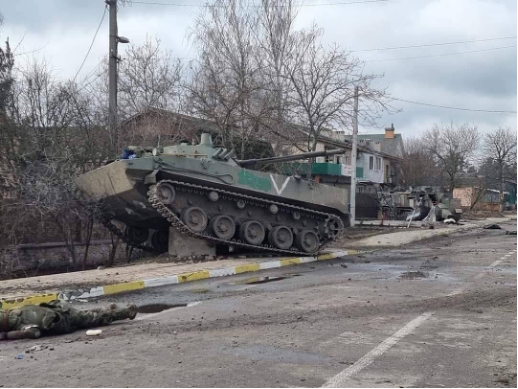New Report! A Systems View of Russia’s Early Failure in Ukraine
by Roger N. McDermott
Dear Colleagues,
The Saratoga Foundation is pleased to announce the release of another major new report, Fractured Strategy: A Systems View of Russia’s Early Failure in Ukraine by Senior Fellow Roger N. McDermott, examining the systemic political-military failures underpinning Russia’s early setbacks in its 2022 invasion of Ukraine.
Published as part of our new project, The Kremlin and Strategic Failure in the Ukraine War, this timely report challenges the popular view that Moscow’s failures at the onset of its invasion were simply the result of tactical missteps. Instead, McDermott shows that the collapse was structural—rooted in the Kremlin’s decision to frame the invasion as a “Special Military Operation” rather than a war. This political fiction stripped Russia’s Initial Period of War (IPW) doctrine of the mass, synchronization, and depth it requires for success, while preventing mobilization on the scale modern conflict demands.
Russia entered the war expecting a swift victory. But flawed intelligence, rigid centralized command, fragile logistics, and fragmented inter-service coordination left its forces unable to adapt. Battalion Tactical Groups lacked manpower and redundancy; airpower could not suppress Ukrainian defenses; and Russia’s tightly coupled system meant that the failure of one component cascaded across the entire campaign.
By contrast, Ukraine leveraged decentralized mission command, rapid decision cycles, integrated ISR, and whole-of-society mobilization. Its resilience transformed Russia’s intended blitzkrieg into a stalled, fractured advance.
The lessons are stark: raw power alone is insufficient in high-tempo modern warfare. Success depends on agility, coherence, and resilience—the very qualities Russia’s system lacked.
We invite you to read this timely and deeply researched analysis, which sheds light not only on Russia’s failures but also on the evolving nature of modern war.
👉 Please download the full report: here
Enjoy!
Thank you for your support! Please remember that The Saratoga Foundation is a non profit 501(c)(3) organization. Your donations are fully tax-deductible. If you seek to support The Saratoga Foundation you can make a one-time donation by clicking on the PayPal link below! Alternatively, you can also choose to subscribe on our website to support our work.
https://www.paypal.com/donate/?hosted_button_id=XFCZDX6YVTVKA



I beg to disagree on a few points:
- This operation cannot be compared to the US invasion in Iraq. The US saw Iraq as a hostile country that had to be conquered. Russia saw Ukraine as a brotherly nation that happened to have a hostile government thanks to the US sponsored "Maidan coup" of 2014. Calling it a Special Military Operation was to a large extent to soften Ukrainian feelings.
- For the same reason Russia walked a fine line between military effectiveness and antagonizing Ukrainians with needless killings. The going all in that the report advocates was for that reason rejected.
- Russia was not planning for or expecting a big war. Soon after it became clear that they were stuck they agreed in Istanbul to withdraw to their positions before the war. It was NATO interference (wanting to "weaken Russia") that made this impossible.
- There was some plan for a regime change. Ukraine has started judicial procedings against some people for being involved in coup plans. One has to wonder what would have happened if the tank traffic jam had not happened and the landing at Hostomel had been a success. Ukraine clearly was paralyzed in the first few days...